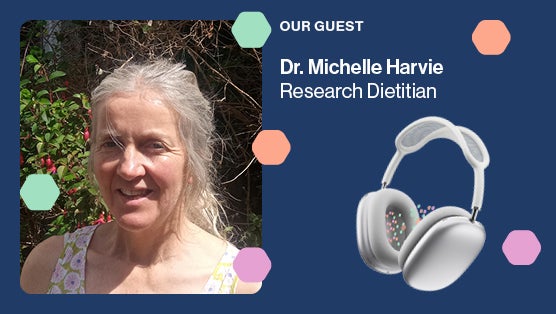This site is intended only for the use of UK Healthcare Professionals
Bonus episode: An overview of a research dietitian working in the field of diabetes
- 20/12/2022

In this podcast Dr Michelle Harvie discuses the importance of research and setting research questions to test a hypothesis. One particular interesting area of work researched by Michelle is the very low-calorie diet and the 5:2 diet within diabetes. Disclaimer: BDA endorsement applies only to the educational content of the learning activity.
Information for Healthcare Professional Use Only 
Participants
-

Dr Michelle Harvie